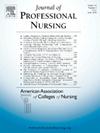导航护理不文明的流行:理解和解决护理教育中的不文明
IF 2.9
3区 医学
Q1 NURSING
引用次数: 0
摘要
护士教育者必须解决扰乱学习过程的不文明行为。这可能有助于防止学生对不文明行为变得麻木和适应。尽早开始护理教育可能会扭转这一趋势,并减少最终对职业的有害影响。解决护理教育中不文明行为的干预措施包括:角色塑造、沟通、文明训练和制定文明规范。护理教育工作者必须创造安全的学习环境,让学生感到舒适地进行讨论,提出问题,并参与民间对话。在过去的40年里,人们对这一主题进行了探索,并开发了基于证据的干预措施。是时候将这些干预措施纳入护理课程了。通过这样做,我们可以在护理教育中培养一种文明和专业的文化,使学生和专业受益,最终使患者的护理结果受益。这种全面的方法将确保为未来的护士提供一个更加尊重和有效的学习环境。本文章由计算机程序翻译,如有差异,请以英文原文为准。
Navigating the nursing incivility epidemic: Understanding and addressing incivility in nursing education
Nurse educators must address the uncivil behaviors that disrupt the learning process. This may help to prevent students from becoming desensitized and enculturated to incivility. Beginning early in nursing education may reverse the trend and decrease the eventual deleterious effect on the profession. Interventions to address incivility in nursing education include: role modeling, communication, civility training, and developing civility codes. It is imperative that nursing educators create safe learning environments where students feel comfortable to hold discussions, ask questions, and engage in civil discourse. For the past 40 years, this topic has been explored, and evidence-based interventions have been developed. It is time to embed these interventions into nursing curriculum. By doing so, we can cultivate a culture of civility and professionalism in nursing education that benefits students and the profession and ultimately patient care outcomes. This comprehensive approach will ensure a more respectful and effective learning environment for future nurses.
求助全文
通过发布文献求助,成功后即可免费获取论文全文。
去求助
来源期刊
CiteScore
4.80
自引率
8.00%
发文量
153
审稿时长
52 days
期刊介绍:
The Journal will accept articles that focus on baccalaureate and higher degree nursing education, educational research, policy related to education, and education and practice partnerships. Reports of original work, research, reviews, insightful descriptions, and policy papers focusing on baccalaureate and graduate nursing education will be published.

 求助内容:
求助内容: 应助结果提醒方式:
应助结果提醒方式:


